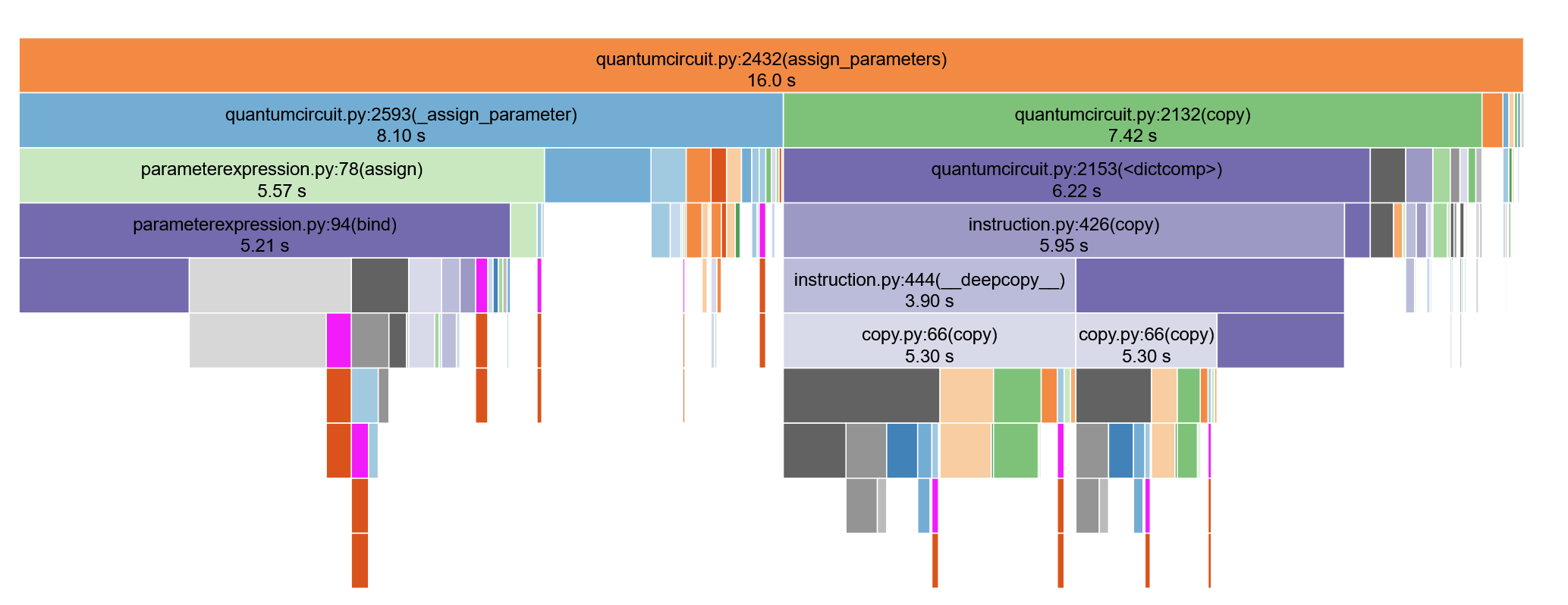We are planning to entirely overhaul how classical parameters are handled, beginning in 0.20, though it might take longer for all the benefits to be fully realised. The two main points you've identified here we 100% know about, and the implementation of #7624 should fix them, which should be in 0.20.
The main issue is that the current model was never really designed for these use-cases; params were originally fixed numeric values, and a lot of handling in circuits and instructions assumes that they will not change. There are various points during the current applications workflows where circuits and instructions need to create new internal objects, which depend on the params, and so when we're then asked to "rebind" a parameter, we have to churn through everything that was already calculated and effectively re-do it. ParameterExpression and calculations with Symengine reduce a little bit of the numeric load, but in the scheme of things, the numeric calculations are miniscule compared to the weight of all the data we have to duplicate to create an entirely new circuit with different parameters.
In some cases, it may be faster to build a new circuit each time with fixed numeric parameters than it is to call assign_parameters - a lot of this is because we don't need to reconstruct internal objects (like Instruction.definition) in this form, but can re-compute them on demand. #7624 will effectively codify that as the only data flow, and the way Terra reasons about its objects, and should make things a lot more efficient.
 Timings may vary, but in general it is similar.
Timings may vary, but in general it is similar.
What is the expected enhancement?
When the same circuit is executed many times but with a different set parameters every time, quite a significant amount of time is taken by
QuantumCircuit.assign_parameters(). This is very important in variational algorithms where a large number of circuits is executed in an algorithm.A quick profiling of the script attached below finds that out of total 40.7 seconds assigning parameters takes 16 seconds. The script is derived from the circuits you may find in quantum machine learning. The same circuit is executed 1200 times in a single iteration. There are 5 iterations in total, thus 6000 circuit executions in total.
Here is a screenshot from smakeviz:
If we drill down we see that almost a half of the
assign_parametercalls is taken by circuit copy and a third of the time is taken byparameterexpression.py.If we could reduce these timings we would speed up variational algorithms.
Setup:
Here is the script to profile: